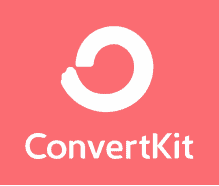The way brands market their products and services has evolved over the years. Today, brands use online marketing, popularly referred to as digital marketing.
Digital marketing involves the use of various tools to foster business-to-business (B2B) transactions and also business-to-customer (B2C) transactions. Each of these tools is effective for specific types of campaigns.
They can help you streamline your marketing campaigns and track, monitor, and measure performance. You can use them to promote your brand, products, and services to various targeted audience groups.
However, without technical expertise and a well-planned strategy, no tool will be able to help you achieve your desired results.
On this resource page, I’ve put together a list of useful tools that have helped me optimize my marketing campaigns for better results. These tools offer what I call simplified technical expertise.
I have categorized them on the basis of the marketing tactics these tools can help you with.
DOMAIN NAME REGISTRARS
Domain names define the address of your website in the online space.
The internet has a vast network of computers that connect through a global cable network. Every computer on the network can communicate with others. They are each assigned an IP address (a series of numbers) to identify them. For example, 42.88.97.243.
It would be very difficult to remember the IP addresses of all websites that you want to visit. That’s why you use domain names instead.
To visit our website, you don’t have to type an IP address. You just need to type our domain name, https://shanebarker.com/, into your browser’s address bar. The search engine will direct you to our site.
If you want to purchase a domain name for your website, you need to choose a domain name registrar.
A domain name can include a combination of numbers and letters. Each domain name is unique. The price of a domain name varies depending on the domain name registrar you choose.
Let’s take a look at my favorite domain name registrars.

GODADDY
GoDaddy is the top domain registrar in terms of the volume of domains registered. It has close to 78 million domain names under management.
GoDaddy is a worldwide operation. They offer classic domain name extensions, including those that are country-specific. They also have domain auctions where you can buy previously-registered domain names.
I like that they offer competitive prices and you may get a discount on the first year of registration. They also offer a user-friendly customer panel and good site-building tools.
Other benefits include professional emails and domain transfers. GoDaddy also offers web security, online marketing tools, web hosting, domain value approval, and more. They also offer global customer support via live chat and phone.

Namecheap
Namecheap also has a strong market share and offers affordable pricing for various domain name extensions. They have a powerful domain search tool that gives you other suitable domain name alternatives.
What I like about Namecheap is their uncluttered web layout. You can easily find what you’re looking for and then, proceed to a simple checkout process with limited upsells.
Their add on services include a free-of-charge “Whois Lookup” privacy feature and one integrated email account. Namecheap also offers web hosting, cloud-based services, and security.
Some of their other features include PremiumDNS, managed WordPress, and private email. They offer 24/7 support through live chat.
Web Hosting Platforms
A web hosting platform hosts your website online and makes it available to users when they search for its URL.
Special computers called “servers” store and manage your web content and keep it safe from malware and virtual attacks. You can share your server with others or have dedicated servers, as needed.
Nowadays, web hosting is done via the cloud too. You can rent virtual space and store resources in the cloud for a rental amount. In this way, you can host large enterprise websites without purchasing costly servers.
Most web hosting service providers will require you to own a domain before they host your website. If you don't have one, you can buy one from the web hosting service providers as well. Many of them also provide you with website building capabilities.
A good web hosting tool includes standard features such as SSL certification, FTP access, email account, and WordPress compatibility.

Cloudways
Cloudways is a managed cloud hosting platform that offers a wide range of services to help businesses and individuals easily deploy, manage, and scale their web applications. They provide a hassle-free way to host websites and applications on popular cloud infrastructure providers, including Amazon Web Services (AWS), Google Cloud Platform (GCP), DigitalOcean, Vultr, and Linode.

Bluehost
Bluehost is an established name in the web hosting industry. They enable you to build and host multiple websites with one account.
You get a free SSL certificate for each of your hosted websites. Plus, your domain name is free for the first year. Thereafter, you can enable auto-renewal to prevent domain expiry.
Bluehost is very much compatible with WordPress. So, if you’re planning to build your website on WordPress, their one-click installation and intuitive dashboards can prove helpful.
In fact, WordPress.org also recommends Bluehost as one of their top hosting service providers.
They offer Shared, VPS, and Dedicated hosting plans, starting at $2.95/month. Other remarkable features include expert 24×7 technical support and great promotional offers for new subscribers.
Another reliable web hosting solution is HostGator. They enable you to host websites with a free SSL certificate, starting at $2.75 per month. If you’re migrating your site to HostGator, you can transfer content and domain registrations for free.
I especially love their 99.9% uptime guarantee. With HostGator at the backend, your website works 24×7 for you.
They offer WordPress Hosting, VPS Hosting, and Dedicated Hosting plans. You can also choose one from the three Shared Web Hosting plans they offer for single domain, starting at $2.75 a month
You’ll get access to one-click WP install, free SSL certificate, and unmetered bandwidth with their Hatchling plan. If you need a dedicated IP and SEO tools, their Business plan is a great deal at $5.95/month
WordPress users will love the platform’s cloud hosting and multiple caching features that can help reduce their site’s load time. They automatically do content backups to prevent data loss.
Websites built using HostGator are scalable for handling spikes in traffic and content volume.
SiteGround is one of my favorite web hosting tools. They offer a range of website management tools for site building, migration, hosting, and security.
Whether you build a site using their website builder or using platforms like WooCommerce and WordPress, your site will be safe from third-party vulnerabilities.
Their experts can help you migrate your existing site within minutes. If your enterprise website needs the added resources and scalability that cloud-hosting offers, you can get it for rates as low as $80 per month
Your website will load fast, owing to SiteGround’s SSD disks, free CDN, and static caching. Free SSL and HTTPS ensure watertight security for your site at server and application levels.
Their low-end plans include the StartUp plan, which costs $11.95 monthly. It allows you to host one website, gives you 10 GB web storage, and supports up to 10K site visitors.
Whether you want to host a personal blog or an enterprise website, DreamHost has you covered. Their powerful web hosting solutions come with a range of pricing plans and capabilities.
What sets them apart from peers is their fast SSD storage, which can help your website cater to dynamic database requests 200% faster than standard HDDs. Their award-winning technical support is another point in their favor.
DreamHost places no caps on traffic and bandwidth of the websites they host. Their Shared Starter pack, priced at $2.59 per month, offers fast SSD storage and free SSL license for one website. You can add an email account for a nominal charge of $1.67/month.
Their newly-addeding Staging feature lets you preview your website’s look and feel before you make it live. This feature is available in the DreamPress and VPS Basic plans for $16.95/month and $13.75/month respectively.
If that’s not enough, you also get a zero-risk, no-obligation subscription which is refundable within 97 days of purchase.
Push Web Tools
Push notifications are a great way to re-engage users and lead them down the sales funnel. Marketers vouch for their effectiveness at increasing the ROI of their mobile apps and websites. Their non-intrusive nature is a top reason why customers and marketers welcome them.
A push web tool is a must-have for all smart marketers. You can use them to send timely and relevant messages to customers in an automated manner.
Using these messages, you can inform users about upcoming events and exclusive offers. You can prompt inactive users to get them to re-engage with your app. You can remind them about abandoned shopping carts and give them intelligent shopping suggestions.
Push web tools segment customers based on their actions. Then, they allow you to craft personalized messages for the different segments.
They also help you identify the optimal posting time for users in different time zones. You can batch process thousands of messages within seconds.
Email Marketing Software Programs
For every successful email marketing campaign, you need to use the right tools and analytics.
Email marketing tools are software programs that offer a range of features to help you automate tasks, engage prospects, increase conversions, and track results.
You can track metrics like the open rate, click-through rate, conversion rate, and bounce rate of your emails to determine the effectiveness of your campaign. This can also help you develop strategies that can generate the best results for your business.
I’ll discuss a few tools that I consider beneficial for email marketers. These tools are well suited for businesses with not-so-big campaign budgets
You can use these tools without much technical expertise and they have all of the features you need to optimize your email marketing campaigns for success
Mailchimp is my favorite email marketing software solution. Their drag-and-drop features help design your emails easily
This is because Mailchimp offers a forever-free email delivery package that allows you to send a total of 10K emails to 2K subscribers every month.
Their free plan offers limited email distribution features and it doesn’t include advanced segmentation, multivariate testing, and custom templates. However, this plan is good for small businesses who are just venturing into email marketing
You can try it to determine if you want to use their advanced packages to further improve your email marketing campaign ROI.
Mailchimp also offers Essentials, Standard, and Premium packages. These plans differ in pricing, the features offered, and the number of emails and subscribers covered.
I recommend that you use their Standard package as it offers access to features like retargeting ads, custom-coded templates, and advanced audience insights. These features can help you optimize your campaigns for optimal results. It starts at $15 per month. And with this package, you can send up to 1.2 million emails per month to reach 100K subscribers.
Mailchimp also offers Essentials, Standard, and Premium packages. These plans differ in pricing, the features offered, and the number of emails and subscribers covered.
I recommend that you use their Standard package as it offers access to features like retargeting ads, custom-coded templates, and advanced audience insights. These features can help you optimize your campaigns for optimal results. It starts at $15 per month. And with this package, you can send up to 1.2 million emails per month to reach 100K subscribers.
I love Mailchimp because of their budget-friendly packages and ease of use. You can easily integrate Mailchimp with platforms such as WordPress, landing pages, and Facebook and Instagram ads.
ConvertKit is the email marketing platform that has been designed for professional bloggers and content creators
They help you convert your website visitors into subscribers through customizable embedded forms. Along with helping you grow your list of subscribers, they also allow you to monitor their behavioral patterns
You can use tags to segment your subscribers based on their interests and activities and then run personalized email campaigns. This can help you boost conversions.
ConvertKit gives you access to easy-to-understand analytics and campaign reports. That’s why it is a great tool for businesses who want to track how their emails are performing in terms of exact figures
Another feature of this tool allows you to resend your email to those contacts who didn’t open it the first time. This allows you to ensure that you never miss a conversion opportunity.
Additionally, ConvertKit can be easily integrated with tools such as Leadpages, ClickFunnels, and Shopify
They offer a free 14-day trial of their services. You can choose to subscribe to any of their customized plans starting at $29/month.
Constant Contact is a powerful email marketing tool that provides an easy-to-use interface for users, which makes it a perfect choice for beginners.
Their drag-and-drop editor enables you to design professional and mobile-responsive email templates. You can also customize your email templates by adding your brand’s logo and links to your social media profiles.
With email marketing automation, you can keep your audience engaged, build strong customer relationships, and drive more sales. Their automation features allow you to: ● Send welcome emails to new subscribers. ● Trigger emails based on an individual’s click patterns. ● Segment audiences. ● Re-send emails to non-openers.
Constant Contact offers powerful list building tools that can help you expand your list of subscribers and increase your brand’s reach and exposure. They automatically update your list based on unsubscribes, bounces, and inactive emails.
They offer three subscription plans – Lite, Email, and Email Plus. The major difference between the three plans is the number of contacts you can target with your email campaigns.
Before you buy any of these packages, you can weigh your options using a 30-day free trial for all of them.
Constant Contact offers outstanding support service. They have a functional live chat, resource library, community support, and they also provide support by phone and email.
Are you looking for an email marketing tool that is cost effective and easy-to-use? Then, allow me to introduce to you AWeber.
AWeber has been around for over 20 years. Needless to say, they have built a vast network of loyal customers who use their services to reach their target audiences.
They offer you a 30-day free trial with access to all of their features so that you can analyze what you are going to pay for.
They have a wide range of budget-friendly plans starting at $19/month. While all of their plans allow you to access all of their features, what differentiates them is the number of subscribers you can target.
Using AWeber can help you prevent spamming and get your emails successfully delivered to the inboxes of your subscribers. That’s why my team and I really like this tool.
They also provide you with automation, segmentation, analytics, and email tracking features. You can get insights about the open rate, click-through rate, and bounce rate of your emails.
Landing Page Builder
Marketing today is all about generating targeted leads that have a high conversion potential. Generic homepages do not get you there anymore. You need to create specific landing pages to cater to the needs and preferences of your various consumer groups.
However, it can be time-consuming to build, manage, and optimize multiple landing pages for improved performance. That’s when landing page builders come into the picture.
There are various tools and platforms that can help you create and manage multiple landing pages from a single dashboard. This can help you optimize your landing pages to generate more conversions.
Let’s take a look at some of the best landing page builders that I recommend.
Leadpages offers various ready-to-use landing page templates. You can also design one on your own. One advantage of using their templates is that they are designed by experts to cater to the needs and preferences of users, and are SEO-friendly too.
With their A/B testing options, you can check the performance of your pages and identify and overcome any issues in your landing page design.
Leadpages comes with lots of customization options, which gives you full control over your landing page design. You can use their simple, drag-and-drop feature to add text, widgets, images, and other design elements to make your landing page more appealing.
You can enjoy a super fast hosting and browsing experience with Leadpages. Another advantage of using this platform is that you can integrate it with Google Analytics, Salesforce, Shopify, and other valuable platforms.
This landing page builder has a simple interface that has been designed to help newbies. You don’t need to have much technical knowledge or expertise to use Leadpages
You can choose from their Standard, Pro, and Advanced plans based on the features you need. Their Standard plan starts at $25 per month.
With the fastest WordPress page builder, Thrive Architect by Thrive Themes enables you to turn your ideas into landing pages that are visually-appealing and conversion-focused.
Their super-fast drag-and-drop editor allows you to make instant changes to your pages. They offer 300+ beautifully-designed templates so that you can create impressive sales pages, webinar pages, and opt-in pages.
You also get access to built-in conversion elements like customizable buttons, countdown timers, testimonials, and lead generation forms.
You can choose their Single License or 5 License Pack plans to get access to all of their features and one-year support. For unlimited support and access to all plugins and themes, choose the Thrive Membership plan at $19/month.
One thing that I like about Instapage is that it allows both newbies and veteran marketers to create landing pages that convert.
They offer templates that have been designed with conversions in mind. If you want to use a particular template, you can also import it from another source and then customize it to meet your requirements.
Instapage offers numerous integration options so that you can connect with your customers through all possible resources. This includes integrations with Keap, Salesforce, AWeber, Mailchimp, Zoho, GetResponse, and Constant Contact.
We all want our landing pages to load fast, right? Instapage can help you achieve this by creating AMP landing pages. This can help you achieve higher conversion rates, which means more profits.
Instapage also allows you to save existing blocks of content so that you can reuse them to design other landing pages. You can use this feature to define key elements such as header content, footer content, calls-to-action (CTAs) and use them consistently on multiple pages.
The landing page builder also supports global blocks, which means that when you update an existing block, Instapage will automatically update its content on all of your landing pages.
Instapage offers Core and Enterprise plans.
Survey Tools
Survey tools help businesses get input from their target audiences. Through survey tools, you can gain insights about how your products are performing. You can also get feedback on the quality of your customer service
You can conduct market research to find out where your products and services stand amidst the competition. If the results aren’t positive, then you can take the necessary measures to improve your products/services and enhance your marketing strategies.
Let’s take a look at some of the top survey tools that you can leverage.
SurveyMonkey can help you design perfect surveys, quizzes, and polls for your target audience. You can gather the opinions of your customers or potential buyers and get feedback via emails, web links, mobile chats, or social media.
This platform also allows you to customize their pre-designed survey templates to match your brand’s aesthetics. You can add your brand’s logo, use your preferred font types and colors, and customize your “thank you” notes.
You can export your survey data in popular formats such as CSV, PDF, PPT, and SPSS, and customize your reports for easy analysis. The best part is that SurveyMonkey lets you easily share data with your team.
Their advanced features include AB testing, question and answer piping, survey logic tools, and a skip logic option.
They have various plans available. You can start using their Team Advantage plan at $25 per user per month and their Team Premier plan at $75 per user per month.
SurveyGizmo can help you gather feedback in a faster, better, and easy-to-comprehend manner.
You can integrate the collected data into your core systems such as Salesforce, Service Cloud, or HubSpot. This will help you analyze data and take immediate action.
SurveyGizmo not only helps you collect feedback from your customers, but also enables you to conduct market research, inventory control, and risk assessment. This will help you make smart decisions for your business’ growth
You can start with a 7-day free trial. They offer Collaborator, Professional, Full Access, and Enterprise Packages, starting at $25 per month.
Zoho Survey is quite easy to use, which means that it can help you create a survey in no time. You can include multiple types of questions in your survey and customize the layout with your brand’s logo and theme.
You can reach a wide audience as this platform allows you to conduct surveys via web links, email, social media, QR codes, and more.
This survey tool is safe to use. You can keep your data secure with passpord protection, SSL certification, and CAPTCHA code. Zoho Survey provides an in-depth analysis of your survey results with real-time reports and filtered responses.
If you are not getting an adequate number of responses, then you can also buy responses using this survey tool.
You can sign up with them for free and conduct a 10-question survey targeting 100 people. For unlimited questions and responses, you need to choose their Plus, Pro, or Enterprise plans, starting at $8 per month.
Selling Cart Platforms
Selling cart platforms are essential for online stores. They help you keep track of items that buyers select while shopping on your store. Ecommerce selling carts enable shoppers to choose products, review them, and purchase them
Selling cart platforms have all of the essential features needed to support online sales. They allow you to add product information, prices, images, tax information, and shipping costs. Many of them also allow you to integrate third-party tools with your store. You can keep track of customer orders and shipping information.
Let’s take a look at some of my favorite selling cart platforms.
SamCart is a selling cart platform designed to boost conversions and sales. It easily integrates with most marketing automation tools.
With SamCart, you can create sales funnels to increase conversions. You can sell your products on various channels such as Facebook, Instagram, Facebook Messenger, blogs, emails, and YouTube.
I like that their high-converting checkout page templates can help you drive more sales and support upsells. You can integrate SamCart with various email marketing, product delivery, and tracking tools. They allow you to accept payments from all major credit cards and PayPal and Stripe accounts.
They offer powerful features that can help you scale your online business in no time. You can offer order bumps and one-click upsells, and run A/B tests to identify your most profitable upsells.
If a customer abandons their shopping cart, you can send them personalized cart abandonment emails to encourage them to complete their purchases.
SamCart offers a 14-day free trial for all of their subscription plans. Their pricing plans vary from $49 to $199 per month, depending on the list of features offered
ThriveCart is a powerful selling cart platform designed to help you increase revenue from your online business. I like their platform as they offer easy-to-use, innovative features such as click bump offers, click upsells, embeddable carts, advanced coupon codes, and A/B testing.
ThriveCart integrates well with other platforms and emails autoresponders. This selling cart allows you to use a simple yet powerful affiliate system to drive more sales.
You can leverage their ready-to-use, high-converting cart templates to boost conversions. They also enable you to customize these templates to best suit your products and services
Their checkout pages, designs, and layouts are mobile responsive and offer exceptional experiences to your customers.
ThriveCart offers world-class customer support and accept payments from PayPal and Stripe accounts.
SendOwl helps you sell digital products from various channels such as your social media profiles, website, blog, or Shopify store. Their pricing plans vary from $9 to $39 per month, depending upon the features included.
I like SendOwl because their checkout page templates offer modern shopping experiences. Your customers will automatically see checkout pages in their native language, which can help improve conversions.
The platform also offers advanced mailing list integration, upselling tools, affiliate tools, and abandoned cart reminders. They allow you to run promotional discount offers and track results in one place. You can limit their redemption period as well to encourage people to buy.
SendOwl enables you to accept payments from various payment gateways such as Apple Pay, credit cards, PayPal, and even Bitcoin.
Course Creation Tools
The online course industry is on the rise and more people are turning to the internet to educate themselves. The main aim of course creation tools is to help you create online courses to share your knowledge and expertise, and make money.
If you want to create an online course, then you need to select a niche in which you excel. You can then select your target audience and plan the topics you want to educate them about.
Once you decide what you want to share and with whom, you’ll need to choose a course creation tool to bring your ideas to life. Many of these tools come with easy-to-understand, instructive guidelines that will enable you to create an online course, promote it, and generate revenue.
Let’s take a look at some of the top course creation tools available in the market.
Teachable is a course creation tool that enables you to create engaging content using videos, images, text, audios, and PDF files. You can also use their intuitive, drag-and-drop builder to create content pages on their platform.
You can create a responsive course website that allows people to view your content on various devices. You can also use Teachable’s Power Editor to code and customize new course pages according to your requirements.
The best thing about using this tool is that they have a simple user interface that enables you to build a professional course website with minimal configuration.
You get access to a number of marketing tools that can help you grow your audience and drive more revenue through your online courses. You can reward people for sharing your course and track results with their built-in affiliate marketing feature
Their Basic plan starts at $29 per month, but it comes with a 5% transaction fees. You can use their Professional and Business plans to avoid transactional costs.



















